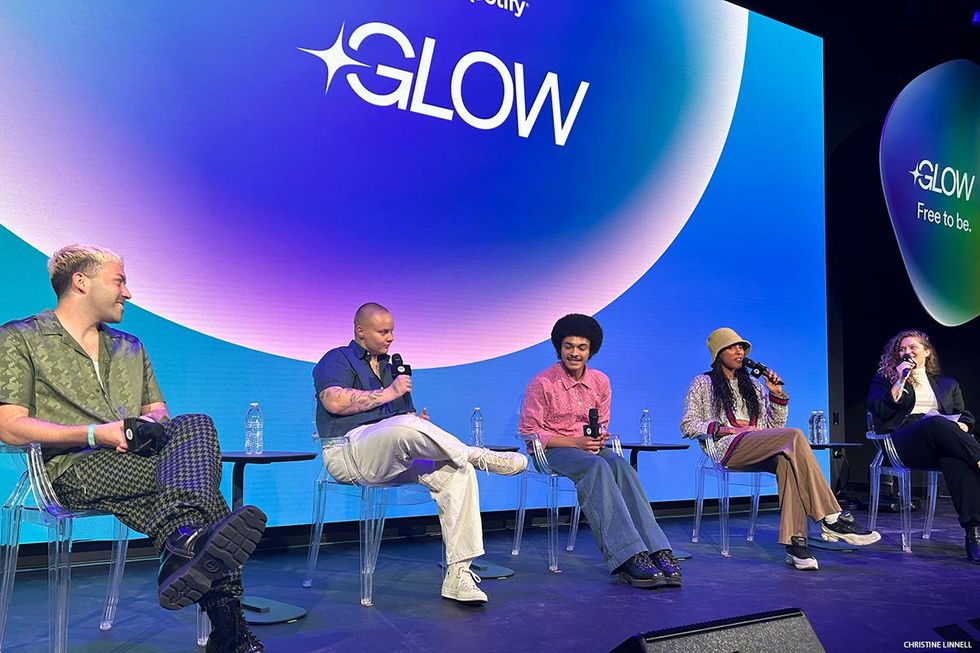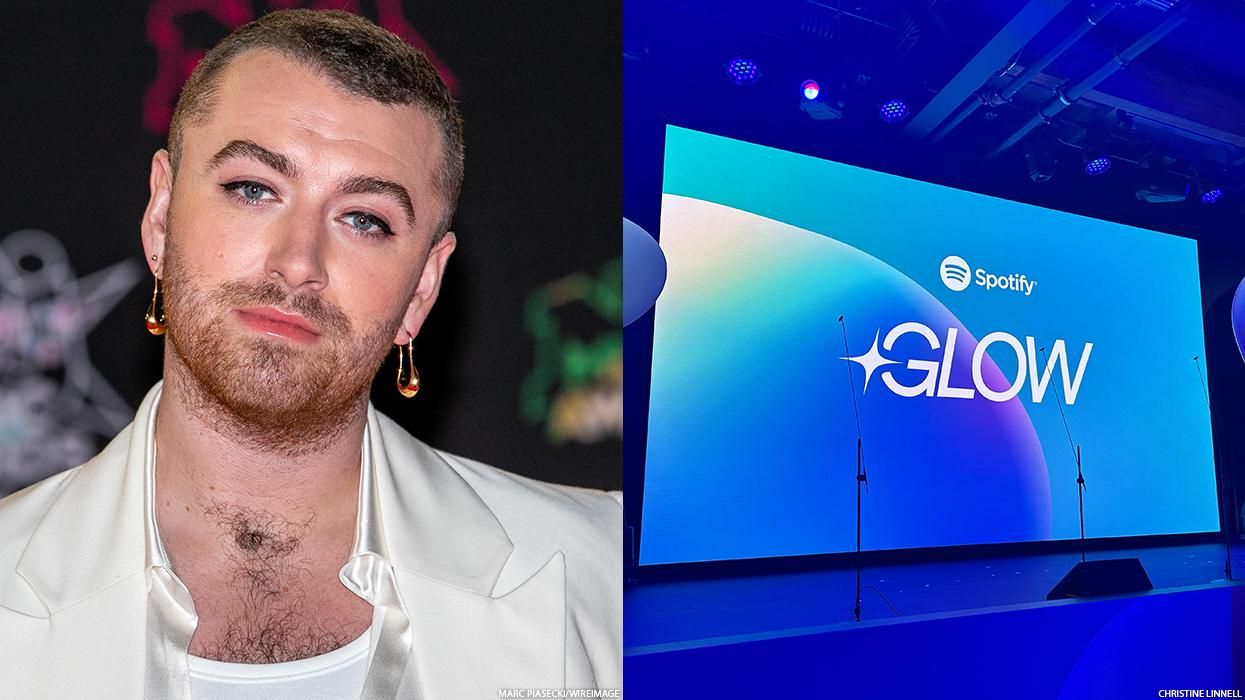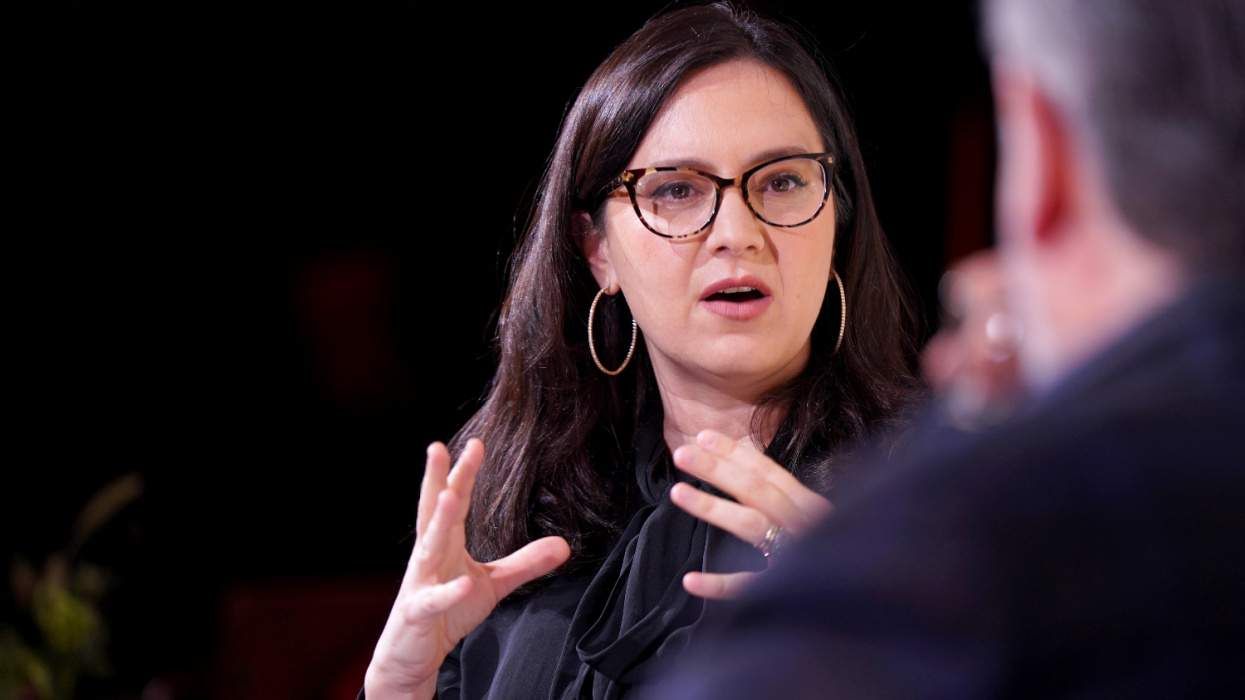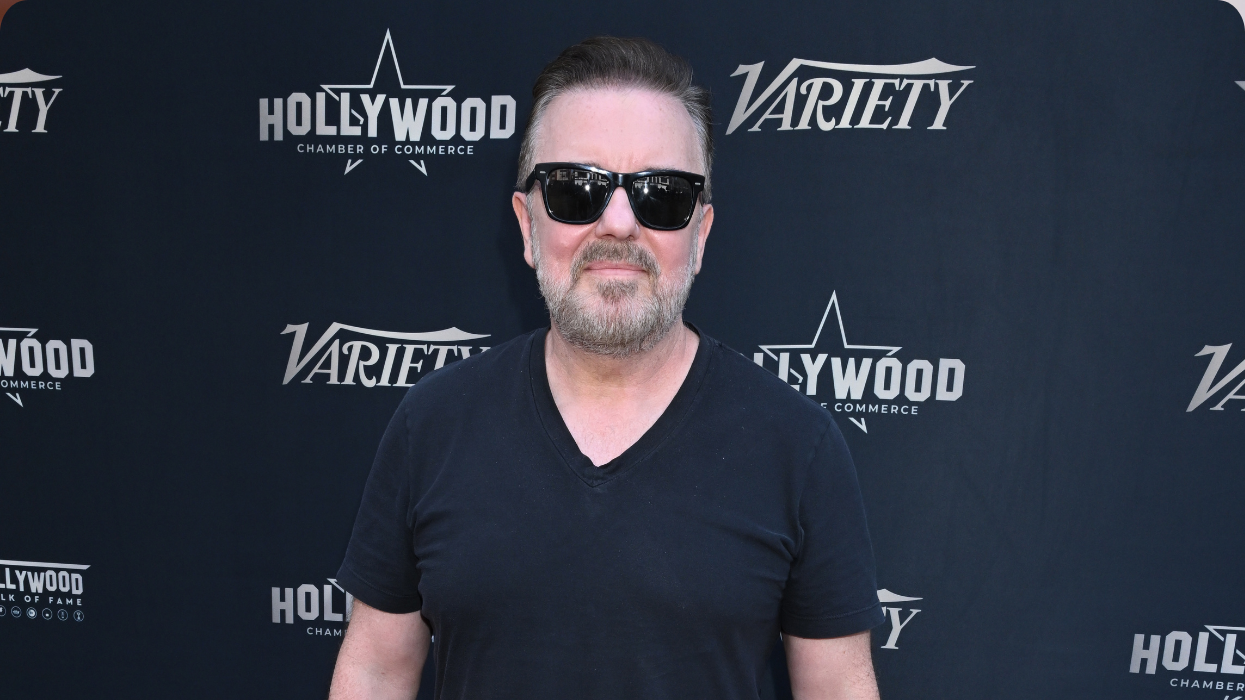With the launch of its latest project, Spotify declared its commitment to supporting and promoting LGBTQ+ artists and creators who often struggle to be represented in the music industry.
On Tuesday, January 24, the audio streaming service unveiled Spotify GLOW, a global equity program for LGBTQ+ musicians.
"Being queer myself and having struggled to come to this point where I feel safe and confident in being who I am, this is a very special moment to me,” said global music programs and social equity lead Bel Aztiria at the launch party, held at Spotify’s office and production space in Downtown Los Angeles.
“We know the LGBTQIA+ community has long shaped music and culture, and we want to honor this immense contribution all year round, beyond cultural moments."
GLOW features a hub and playlist highlighting the latest music from queer artists, with an initial selection including Bruses, Jean Seizure, Leland, Liniker, Natalia Lacunza, Arlo Parks, Joesef, Pabllo Vittar, Sam Smith, Tove Lo, and Villano Antillano. These artists will be amplified on the hub throughout the year and featured on billboards across the U.S.
The program will also offer songwriting workshops for artists, provide marketing and brand partnership support, and facilitate charitable giving to nonprofit organizations like QORDS, Astrea, Black Trans Femmes In The Arts, ChamberQueer, Allgo, It Gets Better, Youth Music, and Casa Chama.

A panel discussion at the event featured queer musicians Leland, Miki Ratsula, Isaac Dunbar, and Arlissa, who attended Spotify GLOW’s first songwriting sessions in Los Angeles.
Leland, whose work has been featured on shows like RuPaul’s Drag Race; Love, Victor; and The Other Two, talked about his anxiety early in his career that singing openly about same-sex relationships would bar him from being played on the radio.
“There is a unique sense of freedom in saying exactly what you want to f**king say,” he said of the songwriting sessions. “I’m really happy to be in this chapter where we can go into rooms this week, and everyone can sing about whoever they want to sing about, knowing that you’re going to be affirmed and celebrated.”
Trans and nonbinary artist Miki Ratsula said it was incredible to make music with like-minded people who accept their identity without question.
“I have a song that’s my favorite to play live, and it’s about my experience when I realized I wanted top surgery,” they said. “I was really scared to admit it. I was really scared that I was going to lose friends and family and my partner.
“Whenever I play that song live, I have this moment with the crowd that’s like, ‘I’m sorry if you relate to this song, but at least we can heal together in this moment when I’m singing it.’ It brings me to tears every time. If I was in that crowd then, when I was younger, I probably would have saved myself from a lot of dark places.”
For Isaac Dunbar, known for his covers of queer icons, the musical inspiration for his younger self was undoubtedly Lady Gaga. “I heard Gaga for the first time in Providence, Rhode Island, 2008, 92 Pearl FM if any of y’all know what that is. I heard ‘Paparazzi’ for the first time, and it absolutely changed my world.
“I taught myself how to produce music through listening to my favorite songs. I owe it all to Gaga, on the technical part and also her activism. Being a kid that’s gay and Black and in a Christian household, it was not easy at all. Gaga was my solace.”
Arlissa said her experience with GLOW demonstrated the beauty of the LGBTQ+ community, particularly for Black queer artists.
“The world was not made for people like us. Every single day we take the time to look within ourselves and pour out and heal ourselves. So when you go into a room and you create music or you create art or you throw paint at the wall or whatever, [and] you’re doing that with people who know what it’s like... It’s safety. It’s community.”















